Despite the old idiom, bats are not blind—they just don’t rely on their sight to any meaningful degree. Instead, they “see” the world primarily through sound, using something called echolocation. Echolocation occurs when an animal emits a sound wave that bounces off an object, returning an echo that provides information about the object’s distance and size.
Bats use echolocation to navigate, forage, and locate prey. Because they rely upon it so heavily, bats’ echolocation abilities are so finely tuned that they can detect objects as small as .007 inch—about the width of a human hair.
Listen to bat noises
Can People Hear Bat Sounds?
Bat echolocation is ultrasonic, meaning that the sounds mostly occur at frequencies too high for humans to hear. These sounds, often described as “clicks,” range in frequency from 14,000 to well over 100,000 Hz, while the human ear can only hear up to 20,000 Hz (although this varies with age—you can test your hearing here).
Although humans might not be able to hear bat sounds, bat detectors can. These devices are equipped with a specialized microphone that can record ultrasonic sound, as well as electronics that translate that sound to where it is audible to the human ear. Here’s a library of recordings of bat sounds that we can actually hear.
Bat Sounds in Your Home
Bats are known to take refuge in human structures, especially in attics, as they provide harborage, and are often near food and water. While we may not be able to hear the “clicks” they use for echolocation, bats make plenty of other sounds that can make their presence known. They are nocturnal creatures, so if you do have bats, you’ll usually hear them late at night, or very early in the morning, as they return from a hunt.
Bat Noises in Attics
Bat often roost from within wall cavities or in attics, as these locations are suitable substitutes relative to their native shelter (trees, caves, and crevices).
As for identifying bats’ sounds, their vocalizations sound like squeaks and chirps. Residents most often hear bat sounds at night or in the early morning when the pests are either leaving or returning from their search for food. If there is a larger colony in your attic, the bat chirps are louder.
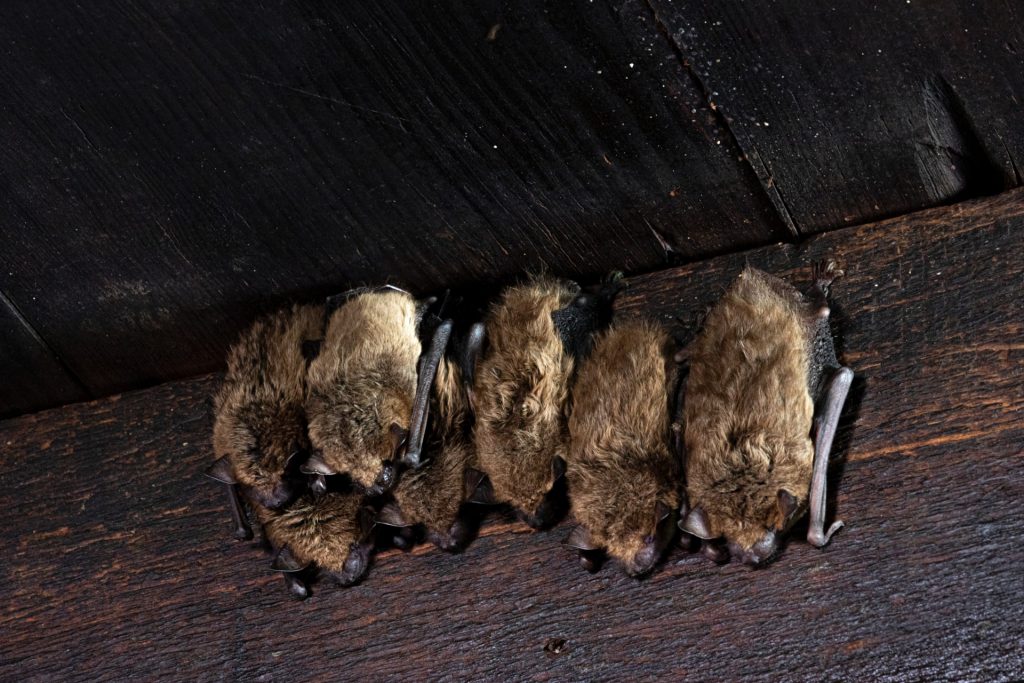
Bats in an attic can sound similar to mice. Since it’s very difficult to hear their vocalizations, the sounds we can hear from bats result from their movements. As flying creatures, bats make fluttering noises. They also make scratching, and rustling noises when using their wings to climb and crawl. Sometimes, you may be able to hear bat vocalizations, which will take the form of chirping or squeaking.
Bat Noises in Walls
Another common bat destination, the insides of walls are an ideal spot for a bat to hole up for hibernation. The sounds of a bat inside walls can often sound like a mouse, a key difference being that while mice often produce a “scurrying” sound due to them running around, bats won’t make this particular noise, as they travel by flight. Additionally, you might hear fluttering sounds if a bat is stuck and trying to make its way through insulation. But bats are generally quiet creatures, and while you might be able to hear them, there are other things to look out for.
Other Bat Signs
There are a few other signs to identify a bat infestation. One is a persistent, musty, ammonia-like smell that bat feces is known to emit. Another sign is the droppings themselves, which are small cylinders, usually crumbly in texture and tapered at the ends.
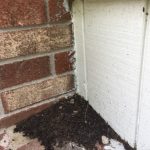
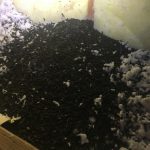
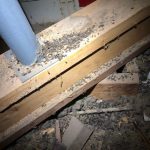
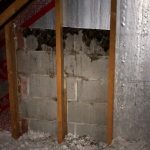
Yet another sign of a bat infestation is oily stains on the walls of the roost site. Bats secrete oil through their chest, and when they rub against the walls of the roost site, the oil is imparted to the wall. These stains start out as mere discolorations, but over time become dark, oily stains.


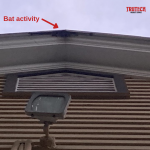
How to Get Rid of Bats
A bat infestation can be a serious problem, as bats commonly carry rabies, and their droppings may facilitate the growth of histoplasmosis. For this reason, direct contact with bats should always be avoided. If you hear what you believe to be bat noises in your home, or have noticed bat excrement, contact Trutech Wildlife. Our team has the knowledge and resources to assess, and resolve, the situation quickly and safely.
Call Trutech In To Get Bats Out
Bat Removal Near You

Bats in Jacksonville, FL
There are 13 species of bats in Florida; several of these, including little brown and big brown bats, may be found in residential homes and
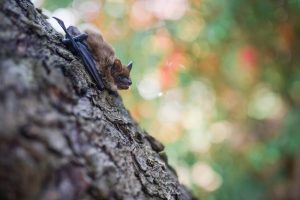
Bats in Tampa-St Petersburg, FL
Florida is home to thirteen bats, and all of them eat insects. Residents in Tampa Bay can experience incredible benefits from bats on their property.
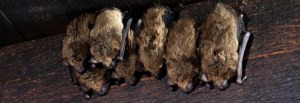
Bats in Orlando, FL
Bats are found in nearly every geographic region in Florida. Their favorite environments include tropical forests, woodlands and open fields. Natural roosting spots include caves,

Bats in Kansas City
Kansas is home to fifteen species of bats, and all of them are insectivores. Bats in Attic in Kansas City Bats in Kansas naturally roost
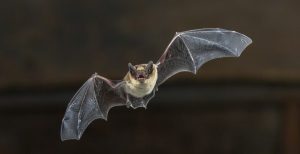
Bat Removal in Northeast Ohio
There are eleven species of bats commonly found in Ohio. The solitary species are the hoary bat, the silver-haired bat, and the Eastern red bat.
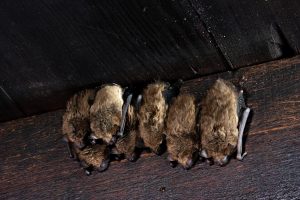
Bat Removal in Raleigh
The most humane way to get rid of bats is to let them evict themselves. A bat valve allows bats to fly out of your


